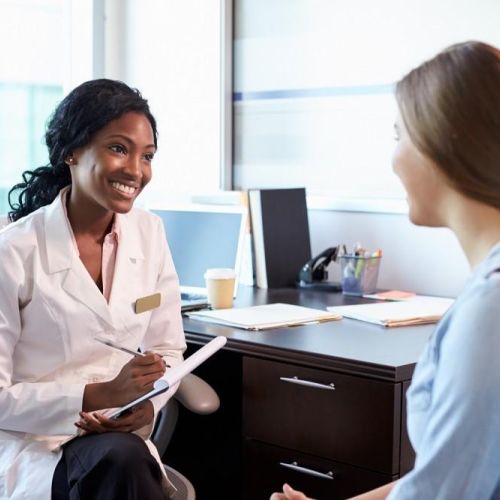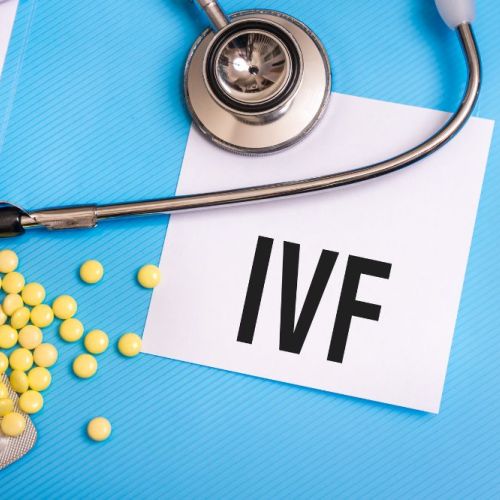What is the Age Limit for Egg Donation?

Egg donation is a generous gift to infertile couples who are struggling to conceive. Women who become egg donors may be motivated to help a couple make their dream of building a family to come true and in return, donors are generously compensated for their time and dedication. If you’re considering donating your eggs, you probably have a lot of questions starting with “What is the age limit for egg donation?”
At the Center for Reproductive Health, donors must be between the ages of 20 and 31. We’re always looking for bright and healthy young women to participate in our egg donation program.
Why Age is Important for Egg Donation
Women who undergo in vitro fertilization (IVF) with donated eggs want to make sure their chance of having a healthy pregnancy is good. For this reason, they need the donated eggs to be as high quality as possible. The highest quality eggs usually come from donors in their twenties and early thirties.
Women are born with all their eggs and don’t produce new ones as time passes. As women age, the number of available eggs that remain decreases and the chance of eggs carrying defective genes increases. The older you are, the more chance there is that the pregnancy will fail and there’s also a higher risk of genetic disorders.
Other Factors Required to Be an Egg Donor
Besides being between the ages of 20 and 31, egg donors must be in good overall health including a healthy BMI, so donors can’t be excessively overweight or underweight. You should be in good mental health with no history of substance abuse and you should be a nonsmoker, usually for at least six months.
During the screening process, your family medical history is reviewed to make sure there’s not a history of hereditary diseases. You’re given a comprehensive physical exam to check the health of your ovaries. To qualify for egg donation, you should have both ovaries and a healthy ovarian reserve. Tests are done to check for sexually transmitted diseases.
A psychological evaluation is done, and you’ll be given more information on what’s involved in egg donation such as the time commitment that’s involved, side effects that you may experience and potential complications. There are several steps to egg donation including injections of fertility hormones to stimulate the production of eggs, several visits for ultrasounds and then an appointment is scheduled for egg retrieval. There’s no evidence that egg donation has an impact on your remaining eggs.
Final Steps
If you successfully pass all the screenings, you’ll sign a legal contract that clearly states your rights and responsibilities as well as the compensation you may be receiving for egg donation. You should carefully review this document with an attorney to make sure you fully understand.
Egg donation is a very generous gift and in return, donors usually receive between $5,000 and $10,000 per cycle. If you’re interested in learning more about becoming an egg donor or you’re ready to apply, reach out to the team at the Center for Reproductive Health.
Eliran Mor, MD
Reproductive Endocrinologist located in Encino, Santa Monica, Valencia & West Hollywood, CA
FAQ
What does a reproductive endocrinologist and infertility specialist do?
Reproductive endocrinology and Infertility is a sub-specialty of Obstetrics and Gynecology. In addition to managing medical and surgical treatment of disorders of the female reproductive tract, reproductive endocrinologist and infertility (REI) specialists undergo additional years of training to provide fertility treatments using assisted reproductive technology (ART) such as in vitro fertilization.
Reproductive endocrinologists receive board certification by the American Board of Obstetrics and Gynecology in both Obstetrics and Gynecology and Reproductive Endocrinology and Infertility.
When should I see an REI specialist?
In general, patients should consider consulting with an REI specialist after one year of trying unsuccessfully to achieve pregnancy. The chance of conceiving every month is around 20%, therefore after a full year of trying approximately 15% of couples will still not have achieved a pregnancy.
However, if a woman is over the age of 35 it would be reasonable to see a fertility specialist earlier, typically after 6 months of trying.
Other candidates to seek earlier treatment are women who have irregular menses, endometriosis, fibroids, polycystic ovary syndrome (PCOS), women who have had 2 or more miscarriages, or problems with the fallopian tubes (prior ectopic pregnancy).
What are the reasons we are having trouble conceiving?
Approximately 1/3 of the time cause for infertility is a female factor, 1/3 of the time a male factor, and the remaining 1/3 a couples’ factor.
At CCRH, we emphasize the importance of establishing a correct diagnosis. Both partners undergo a comprehensive evaluation including a medical history and physical exam.
Furthremore, the woman’s ovarian reserve is assessed with a pelvic ultrasound and a hormonal profile. A hysterosalpingogram (HSG) will confirm fallopian tube patency and the uterine cavity is free of intracavitary lesions. A semen analysis is also obtained to evaluate for concentration, motility, and morphology of the sperm.
Additional work up is then individualized to direct the best possible treatment option for each couple.
What is IVF? What is the process like?
In vitro fertilization (IVF) is the process that involves fertilization of an egg outside of a woman’s body.
The process starts with fertility drugs prescribed to help stimulate egg development. In your natural cycle, your body is only able to grow one dominant egg, but with stimulation medication we can recruit multiple eggs to continue to grow. After about 8-10 days of stimulation, the eggs are surgically retrieved and then fertilized with sperm in a specialized laboratory. Fertilized eggs are then cultured under a strictly controlled environment within specialized incubators in the IVF laboratory for 3-5 days while they develop as embryos. Finally, embryos (or an embryo) are transferred into the uterine cavity for implantation.
Should I have IVF?
Before deciding if IVF is the right choice, it’s important to sit down with an REI specialist to discuss available treatment options. For some people, other methods such as fertility drugs, intrauterine insemination (IUI) may be the best first choice treatment. At CCRH, we believe each individual couple is unique and not everyone needs IVF.
Is the IVF procedure painful?
While not painful, the fertility medications may some side effects including headaches, hot flashes, mood swings, and bloating. The injection sites may also bruise.
Will IVF guarantee a baby?
Unfortunately, no. Many people think once they start IVF it’s a matter of time that they will be pregnant and have a baby. But according to national statistics per the Society of Assisted Reproduction (SART), on average 40% of assisted reproduction cycles achieve live births in women under age 35. The chances of success then continue to decrease with advancing age.
At CCRH, we employ only evidence-based interventions to ensure patient safety and optimal outcome. While we cannot guarantee a baby, we guarantee that you will receive the best, most advanced, personalized care to help you maximize your chance of a baby.
What is the success rate for IVF?
The average IVF success rate (success measured in live birth rate) using one’s own eggs begins to drop around age 35 and then rapidly after age 40. This is due to the decline in egg quantity and egg quality as a woman ages.
Our clinic’s success rate consistently beats the national average year after year.
Do insurance plans cover infertility treatment? How much does IVF cost?
Individual insurance plans often do not have any coverage for infertility treatments. If you have a group plan, you can call members services to see if they have coverage for infertility (including consultation/workup and IVF).
After your consultation with our REI specialist, one of our dedicated account managers with sit with you to go over the cost of treatment.




